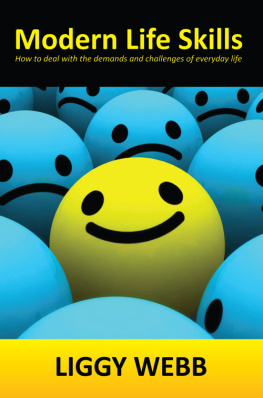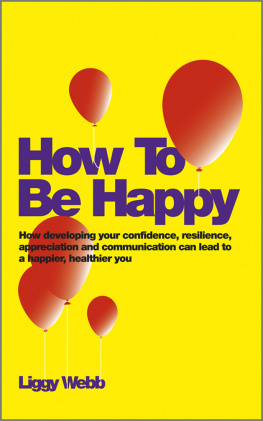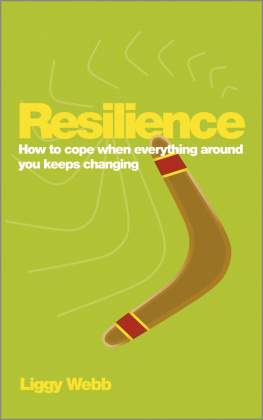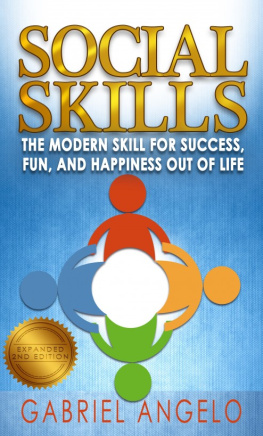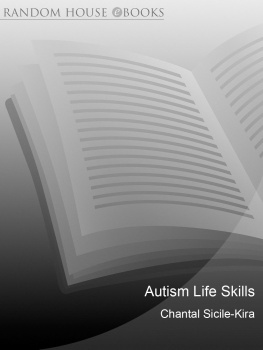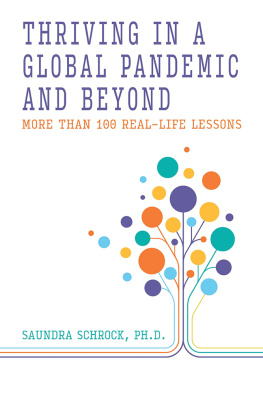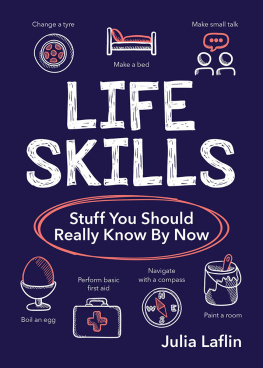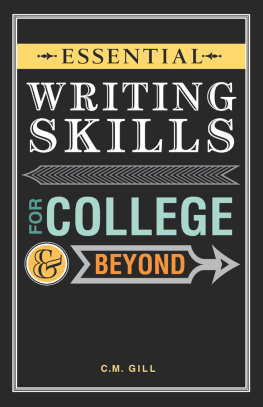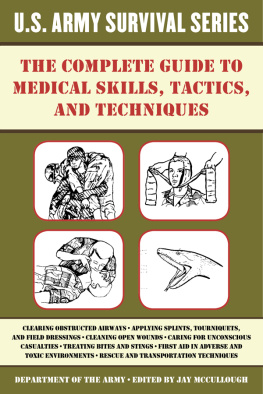
This book is dedicated to my brother and sister
Charles Christie - Webb and Jacky Pearson
Contents Page
A Compendium of Modern Life Skills
Further Reading
Introduction
Life skills are the abilities for adaptive and positive behaviour that enable individuals to deal effectively with the demands and challenges of everyday life
The World Health Organization
Life is becoming increasingly challenging and demanding. Stress related illness and emotional burn out appear to be rife and sickness absenteeism is costing the economy a colossal amount of money. This, in turn, affects just about everyone, with the tax payer bearing the brunt of it.
There is a great deal of negativity about, with a constant stream of job losses, credit crunches and bankrupt economies. Many businesses and even households are reacting by implementing austerity measures.
The media seems to almost relish broadcasting, at every opportunity, the latest tales of woe. With so much doom and gloom around, it is little wonder that by 2020 depression will be the second biggest form of global illness according to The World Health Organization.
Our ability to be able to cope with all the constant challenges and changes is essential and cultivating the ability to be positive and adaptable is more important than it has ever been.
The United Nations Educational, Scientific and Cultural Organization (UNESCO) divides life skills into subsets of categories which include the following:
Learning to know (cognitive abilities) which involves decision-making, problem-solving and critical thinking skills.
Learning to be (personal abilities) which involves skills for increasing internal control, managing emotions and handling stress.
Learning to live together (interpersonal abilities) which involves interpersonal communication skills, empathy, co-operation and teamwork.
There is, however, no definitive list of life skills and all of the above includes the psychosocial and interpersonal skills generally considered to be important. The choice and emphasis on different skills will vary according to the individual and circumstances. Though the list suggests these categories are distinct from each other, many skills are used simultaneously in practice. Ultimately, the interplay between the skills is what produces the most powerful behavioural outcomes.
The United Nations subset of categories for life skills sets out an excellent basis to begin with. There are, of course, other life skills that are required to address a more holistic and balanced approach to modern living that incorporates the physical, psychological and spiritual aspects of life.
In a world that is full of complexity, I have designed this book to be an easy and light read that keeps the key messages clear, simple and concise. It is a tool box for you to dip into whenever you need to and choose from it what works best for you. We are all unique and we all have different strengths and limitations so its up to you to work out what you need to do to become more confident, resilient and capable.
You will discover a compendium of twenty modern life skills and each one is summarised with the Six Steps to Success. These are tips to support you in improving the quality of your life and help you to take relevant personal action. Much of the information in this book you may well be familiar with, however it is not what you know, it is what you do with that knowledge that really counts.
Overall the aim of this book is to help you to be able to deal with the demands and challenges of everyday life. This will empower and enable you to survive and thrive and embrace modern living in the happiest, healthiest and most positive way.
Happy Reading
Liggy Webb
Visit www.liggywebb.com.
Believe in Yourself
Believe in yourself! Have faith in your abilities! Without a humble but reasonable confidence in your own powers you cannot be successful or happy
Norman Vincent Peale
I am a very firm believer that a positive mental attitude will give you the greatest advantage in life and help you to recover from adversity more easily and quicker. Life can be disappointing at times and things can happen that you dont like, however, the way that you choose to respond to these situations is hugely important.
So, before you even begin to explore these key life skills, it is really important that you establish your fundamental relationship with yourself. You need to address your attitude and eradicate as many personal obstacles and negative self limiting beliefs before you can fully benefit from this book.
Fear of failure is one of the greatest limitations people have and worrying too much about what other people think are two of the biggest blockages to personal improvement and growth. Fear of failure is closely related to fear of criticism and rejection.
Remember, successful people look at mistakes as learning experiences, not as failure. If you never made mistakes, how would you learn?
So before we delve into the key life skills here are a few essential bits of advice to help you create the best possible personal foundation:
Take personal responsibility - You are ultimately responsible for everything in your life. Once you accept personal responsibility for that, you will be so much more self empowered and in control of your life and the way that you feel on a day to day basis.
Be positive - Adopt a positive mental attitude. This mind set will give you a far greater advantage in life. Even if something doesnt work out the way you initially wanted it to, at least you will have some valuable learning which may well benefit you in the future. Nothing ventured, nothing gained!
Take action - Action gives you the power to change the circumstances or the situation. You must overcome the inertia by doing something. Ask yourself this question - What would I do if I knew I could not fail? Now there is an exciting concept!
Be persistent - Successful people dont just give up at the first hurdle. Successful people keep exploring different approaches to achieve their outcomes until they finally get the results they want. Persistence can very often overcome resistance!
Be objective - You dont need to take failure personally. Failure is not a personality flaw and although sometimes you may not get the results you want, it doesnt mean you are a failure.
Be flexible - Change is the one inevitability in life and something that we may not have any control over. Learning to accept and embrace change and be flexible and open minded will mitigate any stress or fear that you may experience.
Be kind to yourself - If something doesnt work, dont give yourself a hard time; move on and look towards the doors that are just about to open, not at the ones that have just closed.
Learn and grow - You have to be prepared to increase your failure rate if you want to increase your rate of success - Ask yourself the following five questions.
1.What was the mistake?
2.Why did it happen?
3.How could I have prevented it?
4.What did I learn?
5.What will I do better next time?
These words from Thomas Edison who invented the light bulb sum it all up!
I have not failed. Ive just found 10,000 ways that wont work
Thomas Edison
Learn and Grow
Learn from yesterday, live for today, hope for tomorrow
Albert Einstein
The ability to be open minded to learning and to actively do something with what you have learnt is really important. We can easily, if we are not careful, amass a great deal of knowledge and information, however, if we dont do something positive with it, then, in some respects, it could be considered a bit of a waste of time! There are many health benefits to learning and more evidence shows the importance of keeping our brain, as a goal seeking mechanism, active, interested and receptive.
Next page
